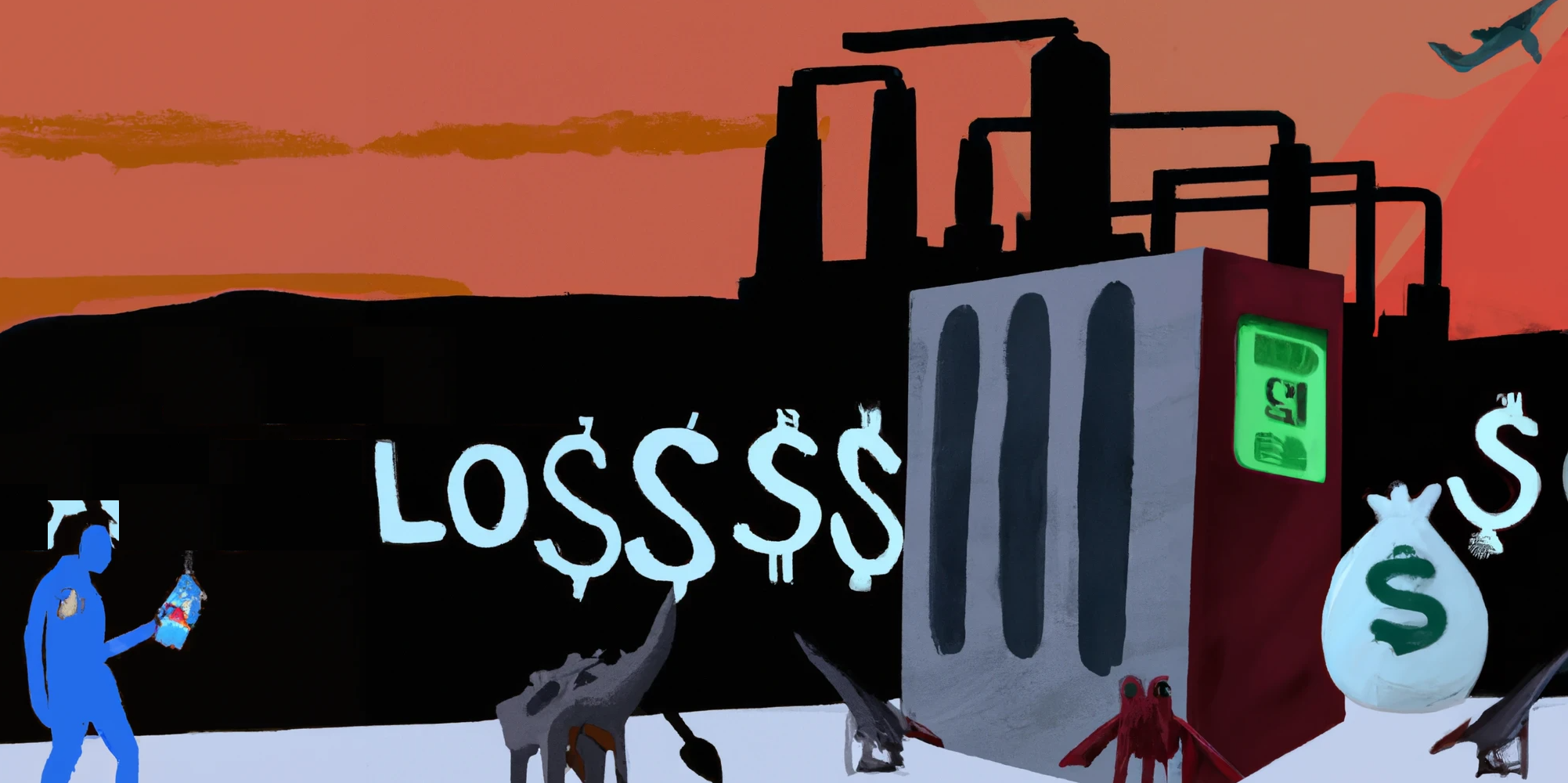
There are two bills pending in the California legislature that would require fossil fuel companies to disclose more information about the carbon emissions associated with their operations and what steps they are taking to help avoid turning the world into a baked potato. Not surprisingly, the industry strongly opposes both bills and is spending freely to make sure they do not get passed and signed into law. Capital & Main has the story.
Senate Bill 253, known as the Climate Corporate Data Accountability Act, would bring together a myriad of existing emissions reporting requirements into one unified process and make the data — including Scope Three emissions — transparent and understandable to the citizens of the state. Assembly Bill 1305, known as the Voluntary Carbon Market Disclosures Act, would shine a light on the carbon credit market in California.
A report by Corporate Accountability in May slammed Chevron, claiming more than 90% of the carbon credits it reported were worthless. Nevertheless, Chevron is planning to use more of those bogus credits and has dumped more than $1.2 million into a lobbying campaign against the two bills so far this year.
What California Knows, Everyone Will Know
Since information disclosed in California would immediately become known outside the confines of the Golden State, supporters of the two bills say they could represent a watershed moment for holding big polluters accountable when they claim they are making bona fide efforts to address the climate crisis.
SB 253 would be a landmark law pinning down the climate impacts of some of the world’s largest companies. As more companies market themselves as partners in the climate fight, greater oversight over voluntary carbon trading markets could help verify those claims. Currently there is a lack of information about who is buying and selling credits. There are also concerns about whether reported emissions reductions ever actually happened. AB 1305 requires this information to be reported publicly.
Fossil Fuel Companies Crank Up Their Lobbying Machines
The bills are opposed by the Western States Petroleum Association, which has already spent $2.38 million on lobbying and advocacy groups this year. While some oil and gas companies in California have expressed their support for rolling back climate change, industry opposition fits into an agenda of delaying action, said Ryan Schleeter, communications director at the Climate Center. “Delay is the new denial. Climate denial won’t fly in this state, and companies are smart enough to figure that out, so they delay as long as possible and squeeze out as much profit as they can,” he said. That will come as no surprise to CleanTechnica readers.
In line with Schleeter’s remarks about delay, the WSPA insists it wants to be part of the “climate conversation,” Kevin Slagle, its vice president of strategic communications, told Capital & Main. He added that the group’s opposition to the two bills in the California legislature “is based not so much on not wanting to progress, as it is how we get to those places. Is it that we are often pushing too far, too fast?” He pointed out that the industry is promoting solutions such as hydrogen and biofuels.
Our readers will immediately recognize that both so-called “solutions” are common stalling tactics employed by the fossil fuel industry to delay the inevitable for as long as possible. It is like running out the clock in sports, and very similar to the blandishments of a certain character in old Popeye cartoons — J. Wellington Wimpy — who was famous for saying “I will gladly pay you Tuesday for a hamburger today.”
Slagle went on to say the fossil fuel industry has been unfairly painted as “evil” due to its frequent opposition to climate accountability measures. Gee, now why would that be, do you suppose, Kevin?
In public comments and written testimony, WSPA representatives have said little about why they oppose reporting requirements proposed under SB 253. However, the California Chamber of Commerce, of which WSPA is a member, has cited the cost of complying with the new rules as a reason for its opposition.
At a time when the fossil fuel industry is earning record profits and the world just recorded its hottest day in human history, is it too much to ask that these companies disclose what they are doing and whether their supposed offsets are worth more than a bucket of warm spit? Apparently so.
Both bills are in line with recommendations from a group of experts convened by the United Nations which concluded that companies should annually report their emissions and reliance on carbon offsets as early steps to eventually ending fossil fuel production.
One of the delay tactics being used by the fossil fuel industry is to claim the issue should be handled at the national level. Then they go crawling to the Supreme Court, where they claim the feds exceeded their authority and these things should be handled by the individual states. Delay, delay, and more delay.
In this instance, the Securities and Exchange Commission is presently formulating its own disclosure rules but they are less broad than what the California bills will require. In a legislative filing, WSPA called the bill’s reporting requirements unclear and redundant, pointing to the SEC’s rulemaking process.
The disclosures required by the California bills, if enacted, have the potential to affect climate action worldwide, said Mary Creasman, CEO of California Environmental Voters, which is sponsoring both bills. “This would be pretty monumental. There is a movement to say we can’t improve what we don’t measure, full stop.” In a recent financial filing, Valero, which is a member of WSPA, warned that the proposed disclosure rules could “be used to advance agendas that disfavor the fossil fuel industry.” Well, d’uh.
Jesse Gabriel, who authored AB 1305, says that argument holds little water. “If these companies want to get the benefit of showing they are on the right side of history, [AB 1305] will encourage them to show that they are purchasing offsets that will actually make a difference.” In other words, it will force the fossil fuel companies to stop talking out of both sides of their mouths.

Not All Democrats Are On Board
A nearly identical version of SB 253 failed last year by one vote in the state assembly, which is similar to the House of Representatives. It’s now headed to the committees that must approve it before it can come to a floor vote. There are 62 Democrats in the California Assembly and only 18 Republicans, yet passage of the bill this year is far from assured. Last year, one Democrat voted against it and 15 others declined to vote on the measure.
Combined, these legislators have received millions from the California Chamber of Commerce, as well as the fossil fuel industry and other corporate interests. “It’ll be a tough bill to pass in the Assembly,” said Creasman. “We’re hopeful this year, because it’s part of a strong package of other corporate leadership and accountability bills.”
Meanwhile, AB 1305 passed by a large majority in the Assembly and is now moving through the Senate. Gabriel is hopeful about its chances. “I actually think the bills would fit together nicely in terms of creating a regulatory architecture that’s going to really just provide more accountability and transparency,” Jesse Gabriel told Capital & Main.
As scrutiny of the fossil fuel industry has grown, companies have cloaked themselves as climate warriors, said Melissa Aronczyk, an associate professor of media studies at Rutgers University who studies the history of the industry’s public relations strategies. She says the public is getting wise to the industry’s tricks, yet the fossil fuel industry member still routinely announce actions or aspirations that are impossible to measure.
“These are efforts to sidestep real rules, regulation or other frameworks, to actually hold these companies accountable,” Aronczyk said. “The irony is that it is a very simple need that we have, which is to phase out fossil fuels. It’s straightforward.”
The problem, of course, is money in politics. Thanks to the arrogance of Chief Justice John Roberts and his cronies, corporations have become super citizens, free to spend as lavishly as they wish in order to curry favor with the country’s elected officials. It’s graft pure and simple and the companies are engages in something akin to racketeering, except their conduct has the seal of approval from the Supreme Court.
To save ourselves, we need to do two things. We need to stop burning fossil fuel products and we need to stop making serving in a state of national legislature a nearly criminal enterprise that trade votes for dollars. Until we remove the money from politics, the people will get steamrolled by corporate dollars every time, and all with the explicit blessing of the Supreme Court.
I don’t like paywalls. You don’t like paywalls. Who likes paywalls? Here at CleanTechnica, we implemented a limited paywall for a while, but it always felt wrong — and it was always tough to decide what we should put behind there. In theory, your most exclusive and best content goes behind a paywall. But then fewer people read it! We just don’t like paywalls, and so we’ve decided to ditch ours. Unfortunately, the media business is still a tough, cut-throat business with tiny margins. It’s a never-ending Olympic challenge to stay above water or even perhaps — gasp — grow. So …





